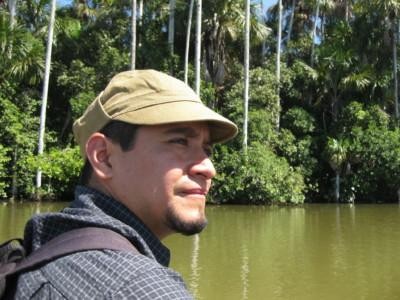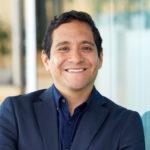May 6, 2021
Thoughts left by 2020, part 1: Global thinking becomes more relevant after the pandemic
The year 2020 not only marked our lives forever, but it also made us think about our current living habits and how sustainable is our life on this planet. More than a year ago, back in February 2020, I was not aware that my last “in person” monitoring mission for 2020 was taking place at that precise moment.
I was leaving Cairo and observing during the take-off the millions of inhabitants depending on the mighty Nile River for their survival. The infinite number of buildings crammed in tight spaces in the heart of the city. My work at Finnfund as an Environmental and Social Adviser makes me look at the risks and interdependencies everywhere, and this was not the exception: I thought that the ultimate risk is our dependence on nature for our survival and despite this being a simple truth, our impact on nature continues relentless, producing immense effects that are global, like climate change, like the ongoing sixth biodiversity extinction, like this endless pandemic.
Like many of you, I have been working from home during the last months, conducting virtual monitoring “visits” to different projects around the world, in different sectors, and all I can think every time is how everything is connected, like a gigantic network of cause and effects, like the butterfly effect, a real dynamic system.
Indeed, this pandemic has stamped in my mind a holistic view of how the world revolves and how Finnfund is part of it and making an impact through our investments.
One ecosystem and an array of solutions through strategic investments
Despite the enormous challenges this pandemic brought, technology has been a blessing. The internet and modern technology instantly increased our resilience as a financial institution, allowing us to rise to the occasion and face this challenge with genuine determination.
As part of my daily work and now more than ever, I use different tools based on the latest technology to evaluate risks, analyse results, monitor mitigation activities – and like all of you, connect with my loved ones. I would not imagine how to analyse tropical landscapes without satellite imagery while working from home.
Also, artificial intelligence and big data are not any more unfamiliar terms to anybody working in Environmental & Social risks analysis. However, would technology solve this pandemic and other global crises? Perhaps. The current vaccine, a marvellous technological advancement, will mitigate the most evident impacts. In reality, we need to go beyond technological solutions and address the underlying causes of this and other global challenges. In this regard, a holistic analysis of the root causes is imperative to implement holistic solutions.

Harold in the southern Amazon before the COVID-19 hit the world.
Technology alone will not fix global challenges
Yes, technology will help us in the fight against climate change, but it alone cannot fix it all and it alone cannot be considered the only solution to this massive challenge. We may wish that technology will solve climate change and other global challenges like future pandemics and the current global biodiversity extinction with just pressing a button.
Complex challenges require complex solutions addressing their underlying causes. These solutions, when applied with a holistic approach, create the wanted sustainable development.
Indeed, Development Finance Institutions (DFIs) like Finnfund, can provide an array of different solutions with a holistic approach to tackle underlying causes of global challenges. Yes, technology is breath-taking, like potent solar plants and formidable wind farms, but so are nature-based solutions like sustainable agroforestry and climate-resilient farming.
Technology alone cannot fix it but only a combination of these different solutions will create the sufficient resilience we need as humanity to adapt and face global challenges larger than the current pandemic, such as climate change and the sixth mass extinction of biodiversity.
The COVID-19 pandemic highlighted the need for resilience
The current pandemic has reminded us that this beautiful planet is one large ecosystem, where everything is fully connected, integrated, and where each cause has an effect. Indeed, humans are an important variable of this essential dynamic system. Like human-induced climate change, we are facing a human-induced airborne pandemic, most likely fuelled by the same unsustainable practices such as the destruction of fragile habitats and ecosystems, illegal trade of endangered wild species and rapid urbanisation. These underlying causes are creating more than one global challenge during our lifespan. This is remarkable.
Despite our societal achievements, we tend to disassociate as a civilization from this massive ecosystem, not realising our intrinsic involvement and significant impact on what occurs at the global level. The current pandemic has demonstrated that it is utterly important to increase our resilience to adapt to the impacts caused by these global challenges. It will take time to address these underlying causes with a holistic approach, therefore, we may expect future pandemics with higher death rates and increased impacts by climate change. While implementing solutions with a holistic approach, we also need to increase our resilience.
In this regard, the work done by DFIs like Finnfund is a significant step in the right direction. Each project makes a key contribution by addressing these various underlying causes while increasing resilience with its own unique geographical and sectoral characteristics. Projects in renewable energy, sustainable forestry, climate-smart agriculture, green technologies, and others are indeed the holistic approach we need to address the diverse underlying causes creating these global challenges. In this marathon, every step counts and my diverse portfolio in the aforementioned sectors in different regions reminded me just that.
In my next blog post, I will share some examples from our investments and first-hand experience from the field. Stay tuned!
Harold Gordillo
Environmental and Social Advisor
